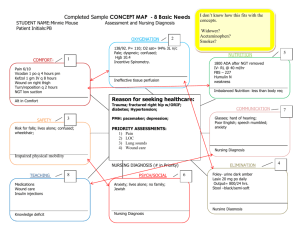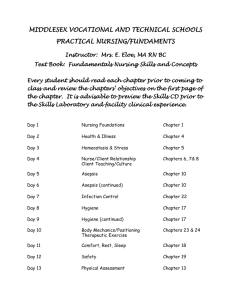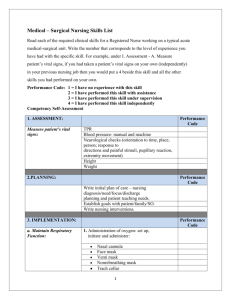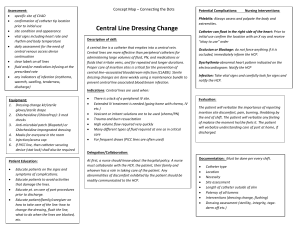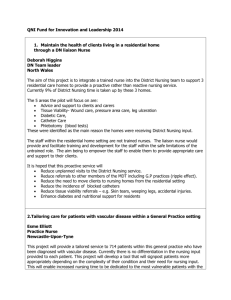Criteria_for_the_Supply_of_hospital_beds_into residential care
advertisement
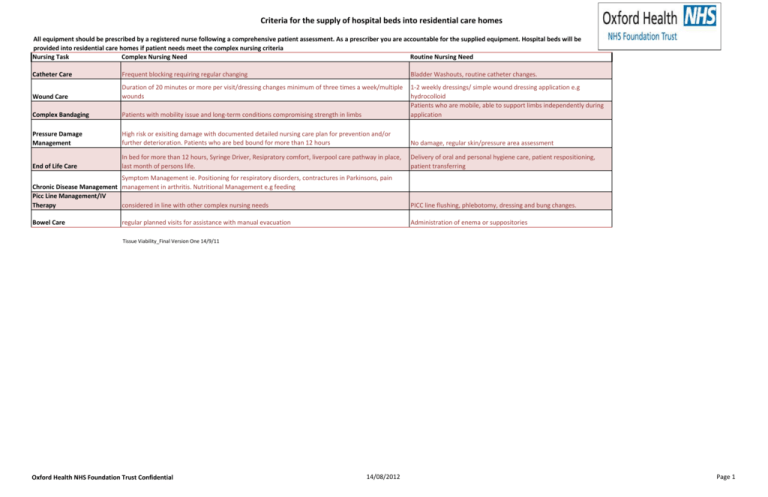
Criteria for the supply of hospital beds into residential care homes All equipment should be prescribed by a registered nurse following a comprehensive patient assessment. As a prescriber you are accountable for the supplied equipment. Hospital beds will be provided into residential care homes if patient needs meet the complex nursing criteria Nursing Task Complex Nursing Need Routine Nursing Need Catheter Care Frequent blocking requiring regular changing Bladder Washouts, routine catheter changes. Wound Care Duration of 20 minutes or more per visit/dressing changes minimum of three times a week/multiple wounds Complex Bandaging Patients with mobility issue and long-term conditions compromising strength in limbs 1-2 weekly dressings/ simple wound dressing application e.g hydrocolloid Patients who are mobile, able to support limbs independently during application Pressure Damage Management High risk or exisiting damage with documented detailed nursing care plan for prevention and/or further deterioration. Patients who are bed bound for more than 12 hours No damage, regular skin/pressure area assessment End of Life Care In bed for more than 12 hours, Syringe Driver, Resipratory comfort, liverpool care pathway in place, last month of persons life. Delivery of oral and personal hygiene care, patient respositioning, patient transferring Symptom Management ie. Positioning for respiratory disorders, contractures in Parkinsons, pain Chronic Disease Management management in arthritis. Nutritional Management e.g feeding Picc Line Management/IV Therapy considered in line with other complex nursing needs PICC line flushing, phlebotomy, dressing and bung changes. Bowel Care Administration of enema or suppositories regular planned visits for assistance with manual evacuation Tissue Viability_Final Version One 14/9/11 Oxford Health NHS Foundation Trust Confidential 14/08/2012 Page 1






